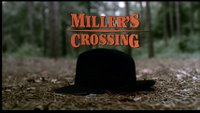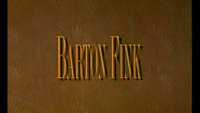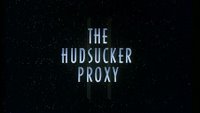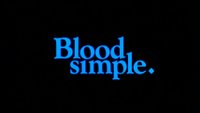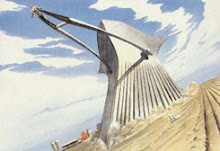Coen (1995-1998)
 1995 - Fargo - The Bros. tackle 1987. I'm fairly certain this is the only Coen film that my mom has seen. This is probably a comment on how effective the Bros.' untrue "True Story" tag at the beginning of the film was. I distinctly remember my older relatives lamenting "that poor boy" whose father completely screwed up his life. It is an excellent movie, mom-friendly or not. The acting is topnotch, the photography of the winter landscape is beautiful and well-composed, and the story unfolds like a Greek tragedy. Like Miller's Crossing, we're also treated to a fun, exaggerated dialect. However, in this film, or O Brother, or Raising Arizona, I'm never sure whether the Bros. are showing us these exaggerated -- but based in reality -- regional cultures of the US to make fun or out of a real love. Marge Gunderson, who, despite speaking in her amusing hyper-Minnesota accent, is treated with such respect that I lean towards the latter option.
1995 - Fargo - The Bros. tackle 1987. I'm fairly certain this is the only Coen film that my mom has seen. This is probably a comment on how effective the Bros.' untrue "True Story" tag at the beginning of the film was. I distinctly remember my older relatives lamenting "that poor boy" whose father completely screwed up his life. It is an excellent movie, mom-friendly or not. The acting is topnotch, the photography of the winter landscape is beautiful and well-composed, and the story unfolds like a Greek tragedy. Like Miller's Crossing, we're also treated to a fun, exaggerated dialect. However, in this film, or O Brother, or Raising Arizona, I'm never sure whether the Bros. are showing us these exaggerated -- but based in reality -- regional cultures of the US to make fun or out of a real love. Marge Gunderson, who, despite speaking in her amusing hyper-Minnesota accent, is treated with such respect that I lean towards the latter option.
Warning to buyers of this DVD. I have the double-sided disc with the widescreen version on one side and the full screen version on the other. Technically, the disc is a DVD-14, meaning that one of the sides is dual-layered. Don't buy this version. Look for the Special Edition with only the widescreen version on it (which would be a single-sided DVD-9). DVD-14s and DVD-18s tend to have major problems: my disc froze on me near the end of the movie and others have reported similar troubles with discs made this way.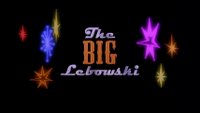 1998 - The Big Lebowski - The Bros. tackle 1991. I've never read a Chandler novel, but I am familiar with the "double-crossing crime" genre (last seen here in Miller's Crossing). I'm not much of a fan of stories of that type, so I particularly enjoy this film flipping the genre around and playing with it humorously. In fact, it's a great framework to play with the crazy characters the Bros. invented or pulled from real life. Plug in the ultra-lazy Dude in the place of an ultra-serious hardboiled dick, provide him some temporary motivation in the form of a crazy Vietnam vet, and see what happens. Refusing to use non-diagetic music, making a period piece a mere seven years in the past, the outer cowboy campfire story layer, nihilism, and dozens of other details add up to make this a uniquely funny film.
1998 - The Big Lebowski - The Bros. tackle 1991. I've never read a Chandler novel, but I am familiar with the "double-crossing crime" genre (last seen here in Miller's Crossing). I'm not much of a fan of stories of that type, so I particularly enjoy this film flipping the genre around and playing with it humorously. In fact, it's a great framework to play with the crazy characters the Bros. invented or pulled from real life. Plug in the ultra-lazy Dude in the place of an ultra-serious hardboiled dick, provide him some temporary motivation in the form of a crazy Vietnam vet, and see what happens. Refusing to use non-diagetic music, making a period piece a mere seven years in the past, the outer cowboy campfire story layer, nihilism, and dozens of other details add up to make this a uniquely funny film.
While watching this film, my film-watching partner and I each drank two White Russians. Each drink was made using a different recipe found online. If you like 'em strong, 2 oz of vodka, 1 oz of Kahlua and 1 oz of half-and-half poured over rocks will do ya. Personally, I preferred the second recipe: 1.5 oz of vodka, 1.5 oz of Kahlua poured over rocks; half-and-half floated on top to taste.
